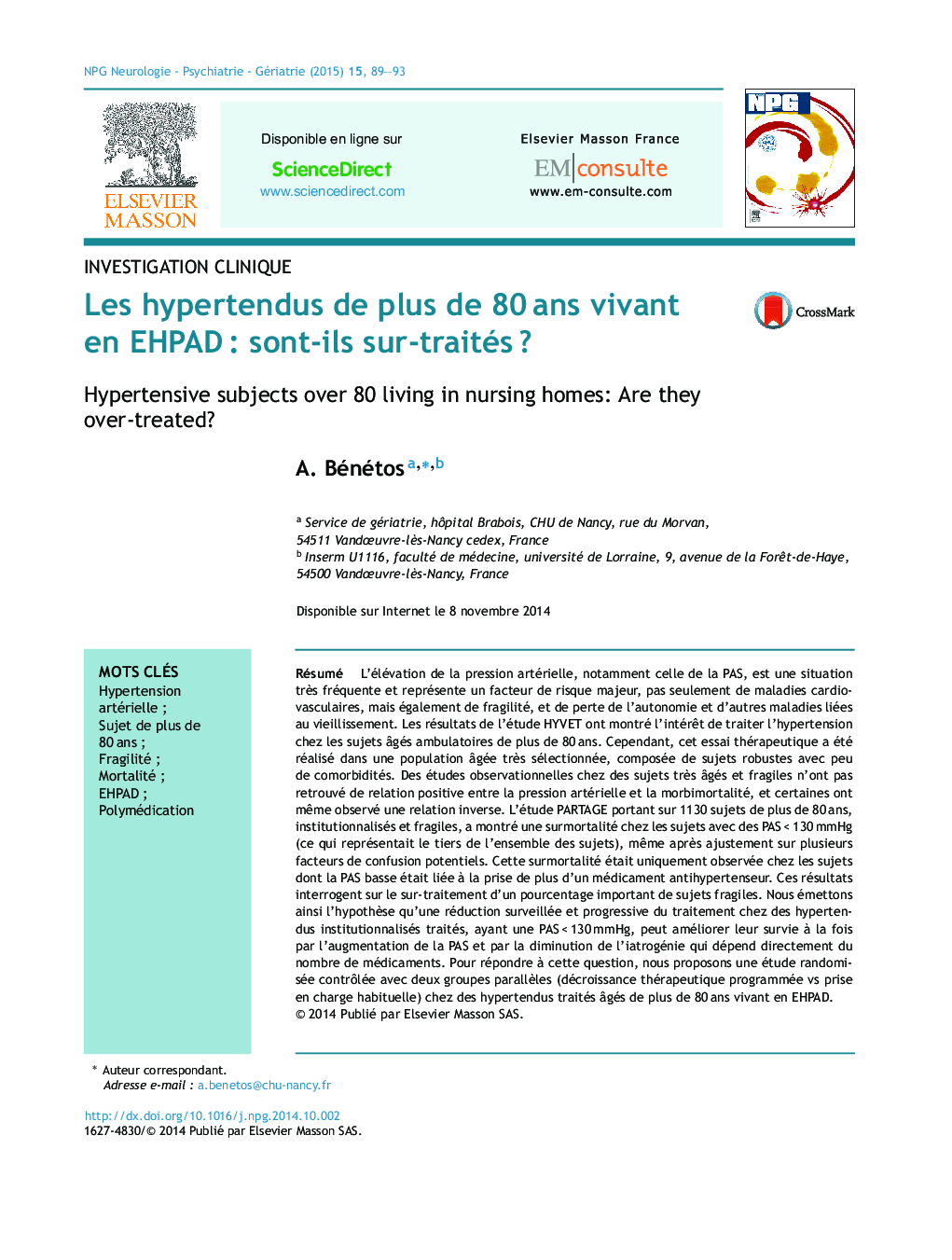| Article ID | Journal | Published Year | Pages | File Type |
|---|---|---|---|---|
| 3325953 | NPG Neurologie - Psychiatrie - Gériatrie | 2015 | 5 Pages |
Abstract
High blood pressure, especially systolic hypertension, is a common condition in the elderly and is considered a major determinant not only of cardiovascular morbidity and mortality, but also of several other age-related diseases, frailty and loss of autonomy. The results of the HYVET study conducted in elderly hypertensives aged over 80 have shown that decreasing blood pressure in hypertensive patients with pharmacological treatment is able to reduce the rate of CV events and total mortality. Therefore, we now have a solid confirmation of the beneficial effects of blood pressure reduction in the very elderly. However, this study was conducted in ambulatory elderly patients with few co-morbidities and co-medications. Observational studies in frail older people have shown no, or even an inverse, relationship between blood pressure and morbidity-mortality. In the PARTAGE study in 1130 subjects â¥Â 80 years living in nursing homes (NH), we showed that subjects with systolic blood pressure (SBP) < 130 mmHg and taking two or more antihypertensive drugs, representing 20 % of the total studied population, exhibited a two-fold increase in mortality as compared to all other groups of subjects, even after adjustment for several co-morbidities. We can therefore suggest that these individuals are over-treated for their hypertension. We hypothesize that a gradual reduction in antihypertensive treatment in NH patients with low SBP can improve survival through a controlled increase in SBP and a decrease in secondary morbidity due to 'over-medication', i.e., the use of too many drugs. Accordingly, we propose a randomized, case-control trial in nursing-home settings with two arms: antihypertensive drug step-down vs. standard care.
Keywords
Related Topics
Health Sciences
Medicine and Dentistry
Geriatrics and Gerontology
Authors
A. Bénétos,
